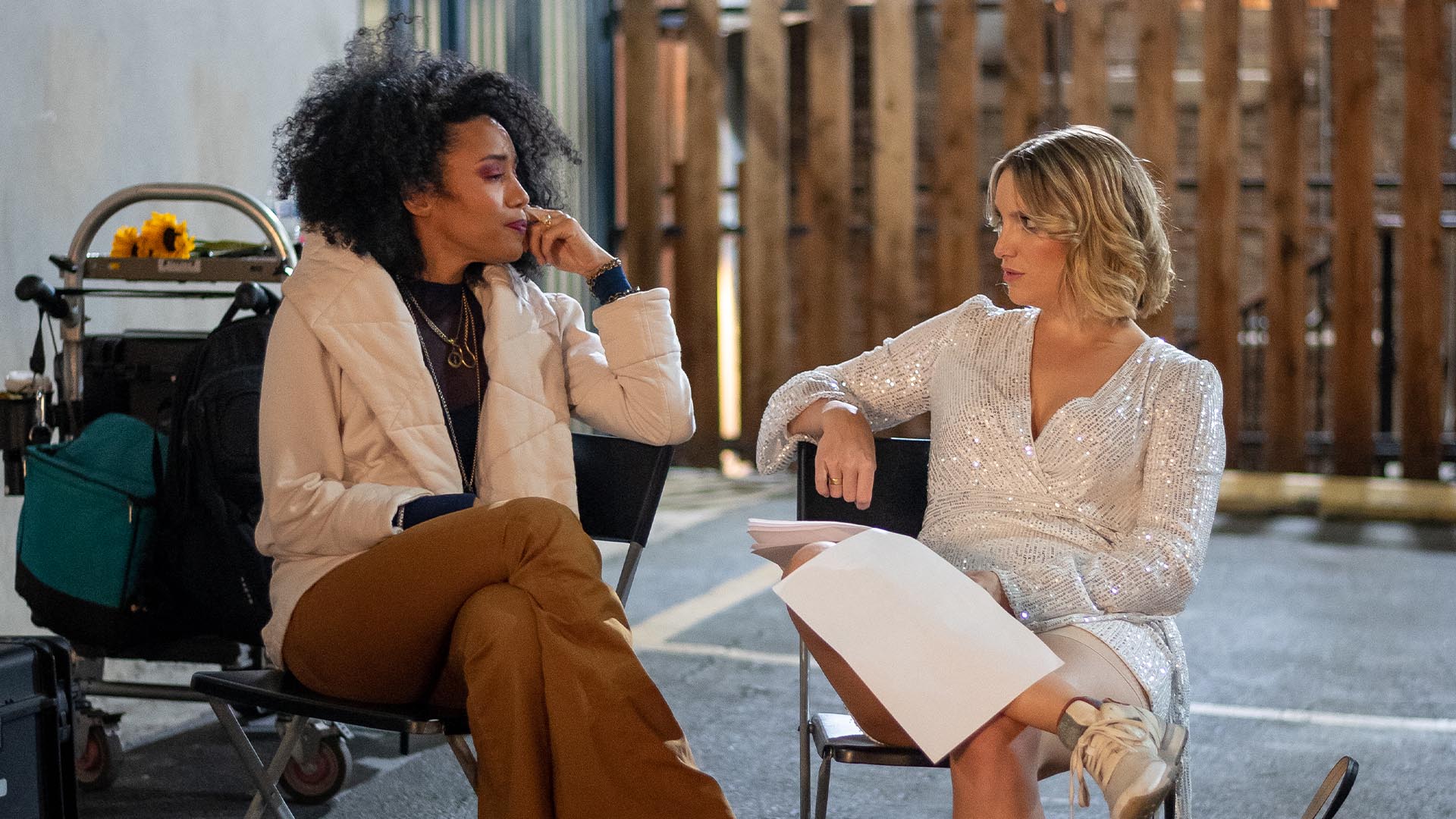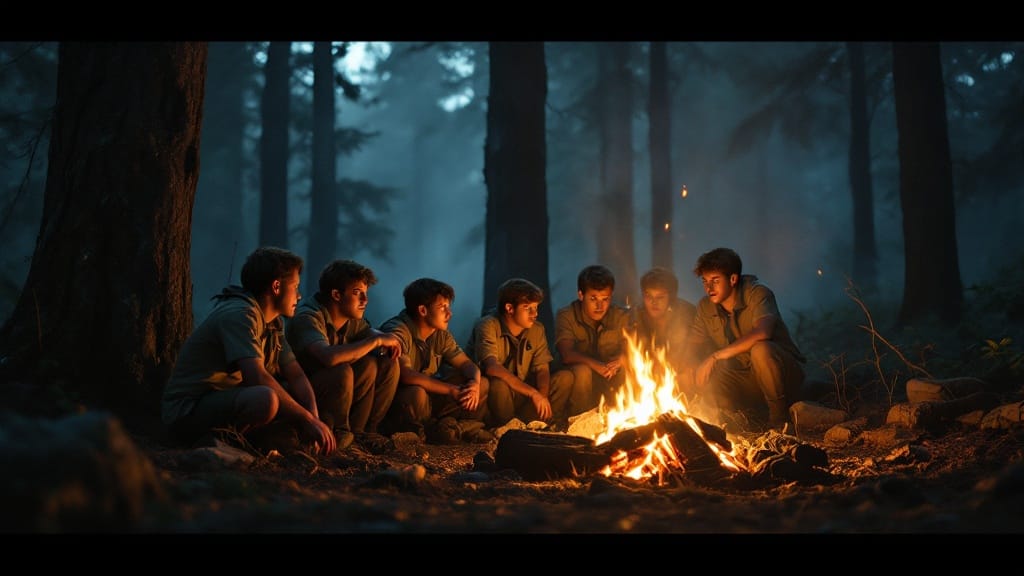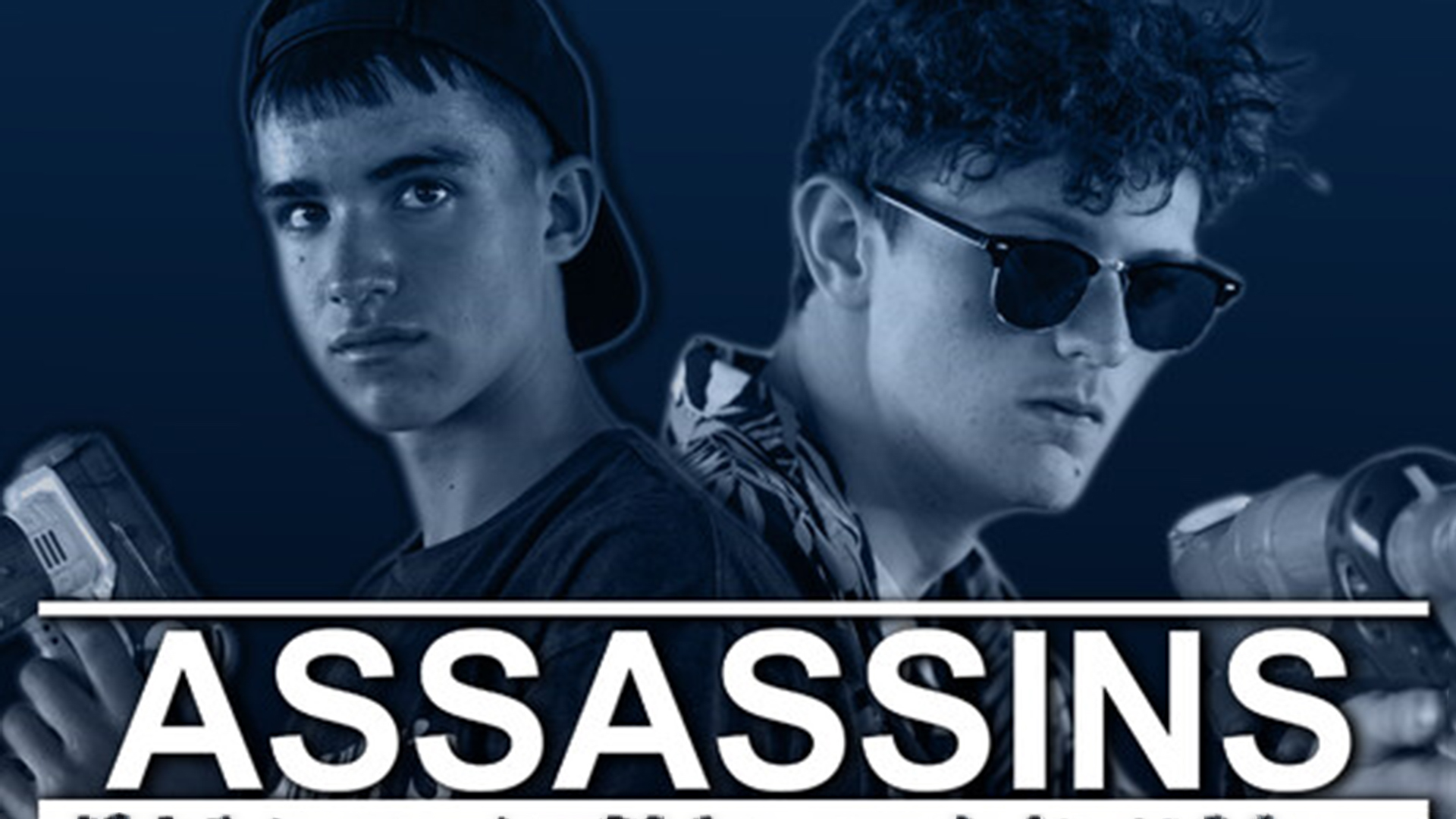Comedy
Imposter

Veronica Maccari, the Writer, Creator and Producer of “Imposter,” sat down to discuss the origins and challenges of bringing her vision to life. Set against the backdrop of the art world, “Imposter” follows the journey of Marina Hayes, an artist grappling with success, authenticity, and the fear of being exposed as a fraud.
“Imposter” emerged from Maccari’s personal experiences and anxieties. “There was a time when I was on the festival circuit with another project that I didn’t feel as confident in,” she revealed. “I started to have a daunting feeling creeping up… What if everyone’s just being nice but they actually KNOW this is not very good?”
The series explores themes of identity and belonging. Marina, played by Maccari herself, navigates the complexities of the art world while battling her inner doubts. “As a painter, she is always creating alone, and there’s nothing more cathartic and validating than creating art in community,” Maccari reflected.
Despite the personal resonance of the project, Maccari faced significant challenges during production. “We had some INCREDIBLE talent working on this show,” she noted. “When you have these kinds of professionals working on your indie project, there is always a chance that they might book a huge gig they cannot pass on during your shoot – and that’s exactly what happened.”
One particularly daunting situation arose when an actor unexpectedly landed a lead role in a major TV show, potentially disrupting the filming schedule. Maccari and her team had to swiftly devise a solution to accommodate the actor’s sudden departure. “Everyone rallied, got creative and somehow got it done,” Maccari recounted, describing the experience as a “real indie film miracle.”
Reflecting on the production process, Maccari acknowledged that she would have approached certain aspects differently in hindsight. “I would have told myself to be less concerned with doing everything perfectly and trust that it was all going to come together beautifully somehow,” she admitted. “If I could go back in time I would have told myself that the story, the talents, and the passion were there – so it was always going to be great in the end.”
For aspiring filmmakers, Maccari emphasized the importance of education and community. “Get yourself into a class,” she advised. “Filmmaking is a long, collaborative process that can seem daunting when faced alone and without any prior experience.”
Maccari encouraged audiences to follow the series and its creators on social media for updates on future projects. “You can follow us on Instagram,” she said, @impostertheseries, me at @veronica_maccari, Shayda Frost at @ffrostt, and Yaniv Waisman at @yaniv05 and @crexels .
Comedy
Troop 458

WARNING! This review contains SPOILERS!
Troop 458, written by Trevor Allen, captures the often daunting, yet transformative, experience of being the new kid in a world full of unknowns. We follow Sidney, an anxious boy thrown into his first Boy Scouts campout, where he faces both the perils of acceptance and the strangeness of his eccentric scout leader. As spooky campfire tales start to weave into reality, Sidney is forced to confront his fears head-on, finding moments of humor, adventure, and unexpected camaraderie along the way.
I like the concept of Troop 458 because it blends coming-of-age themes with a playful sense of adventure, all wrapped in an atmosphere tinged with just the right amount of mystery. Allen’s writing brings to life a cast of memorable characters, especially through Sidney’s journey of growth. The tension between humor and fear feels authentic to the Boy Scouts’ setting, and it captures the real challenges kids face when trying to fit in.
What resonated with me most was the screenplay’s exploration of courage—not just in facing mythical dangers but in embracing who you are, quirks and all. Some aspects could benefit from a clearer focus on character motivations and tighter pacing to keep the momentum strong, particularly during scenes that blur the line between myth and reality.
The dialogue is great in many places, offering humor that feels natural for a group of young scouts. There were moments where I felt the conversations could be a bit sharper or more distinct to heighten the comedic or emotional impact. Character development is a strong suit, with Sidney’s evolution being both relatable and satisfying, but secondary characters could have a bit more depth to elevate the ensemble.
Allen’s Troop 458 is polished, with solid grammar, spelling, and formatting that adhere to professional standards. The structure is clean and makes for an easy read, setting up scenes that are visually compelling.
Troop 458 delivers an enjoyable mix of humor, heart, and a touch of the supernatural, leaving me eager to see how it might come to life on screen.
Comedy
Game Night

Directed by Carston Hadlock and Alex Howard
Warning – This review contains spoilers.
Game Night brings a fun and lighthearted take on a high-stakes poker game that quickly spirals into chaos. The film follows two players as they engage in an increasingly absurd battle, pulling in cards from different games to outsmart one another. I found the playful banter and surprise twists to be entertaining with the film’s simple concept working well within its short runtime. The escalating nature of the game kept the energy high and I thought the twist at the end was a clever and humorous touch that left me smiling.
The story is easy to follow, though it’s more about the journey than the destination. The back-and-forth between the two players keeps the tension alive, with each of them raising the stakes by introducing cards from other games into the mix. The comedic timing in the editing really sold these moments, as the quick cuts and dramatic delivery from the actors added an extra layer of humor to the film. The characters themselves were fun to watch, especially in how seriously they approached the absurdity of their escalating card game. It may not be the most relatable film for someone who isn’t familiar with card games, but the humor and pacing make it enjoyable for a broader audience.
Game Night has some standout technical elements. The sound design effectively complements the fast-paced nature of the film, adding a sense of urgency that drives the scenes forward. While the lighting was generally well done, there were a few close-ups that felt slightly out of focus, and in some wider shots, the composition wasn’t as strong—the focus seemed to drift to a case of poker chips rather than the characters themselves. Still, the fun angles and creative shot choices helped maintain visual interest throughout. The score is dramatic and slightly over-the-top, but it works well within the style of the film, enhancing the comedic tone.
The film also uses close-up shots effectively, adding intensity to the card-playing moments, which helped build the sense that something serious (and yet hilariously inconsequential) was happening. While the sound was mostly solid, I did notice some background room tone cutting out at times, which was a bit distracting. However, the overall editing did a great job of pacing the film, keeping it flowing smoothly from one comedic beat to the next without any jarring moments.
Game Night is a fun, lighthearted short that doesn’t take itself too seriously, and that’s precisely what makes it work. The film has a clear sense of humor, and while the stakes may not be high in the grand scheme of things, the playful twist at the end adds a memorable conclusion. Audiences looking for a quick, entertaining watch will likely enjoy the film’s humor and energy.
Action
Assassins

Directed by Carston Hadlock
Warning – This review contains spoilers.
Assassins delivers a fun and energetic look into a high-stakes game that pits friends against each other in a battle of strategy and wit. As the number of players dwindles, the tension ramps up, and the game becomes increasingly intense. I found the film entertaining, especially with its playful use of classic action film tropes like slow-motion shots and chase sequences. It’s a simple concept but the execution made it enjoyable with plenty of humor sprinkled throughout.
The film has good pacing and the story is easy to follow. We’re thrown into the heart of the action from the beginning with assassins attempting to outsmart each other as they vie to be the last one standing. I appreciated how the film used the cinematography to enhance the chase scenes, especially the dynamic shots of cars pursuing assassins and the camera following them across fields. It added an action-packed vibe to what could have been a straightforward water gun tournament. The use of slo-mo during key moments also gave the film a lighthearted, almost parody-like feel, which worked well with the tone.
From a technical point of view, Assassins has its ups and downs. The lighting was inconsistent, especially in the darker scenes where it became a bit hard to see the action. However, it wasn’t a major issue throughout the film. The sound was clear for the most part, though there was a slight echo in some dialogue, but it didn’t detract much from the experience. The editing flowed smoothly, keeping the film’s pacing tight without feeling rushed, and the action scenes were cut together in a way that maintained the intensity of the game.
Assassins was undeniably fun to watch. There’s a playful nostalgia to it, reminding me of the competitive spirit of water gun fights and games from childhood. It taps into that lighthearted, competitive energy, which is likely to resonate with audiences looking for something that’s both comedic and action-packed.
Assassins offers an enjoyable mix of action and comedy, creating an engaging story from a simple water gun game. Its creative use of cinematography, especially during chase sequences, keeps the energy high, and while the lighting and sound could be improved in places, the overall execution is solid. Audiences who enjoy light-hearted action shorts with a comedic twist will likely appreciate this fun and entertaining film.










